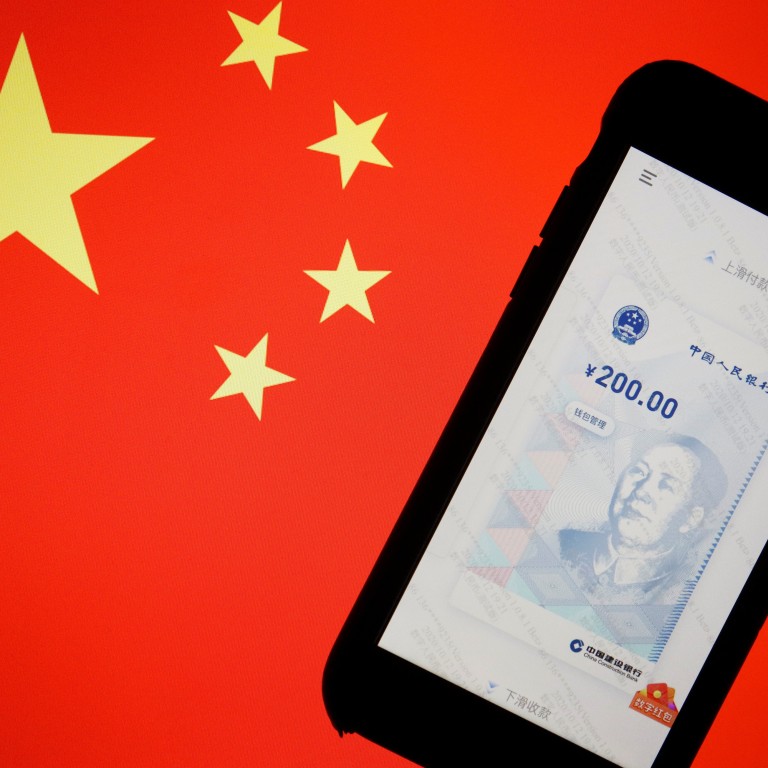
China’s digital yuan aims to halt US ‘dollarisation’, boost retail payments, ex-central bank governor says
- Former central bank governor Zhou Xiaochuan says China’s digital currency aims to push back against US dollar hegemony and boost retail payments
- Unlike G7 central banks, China is less concerned with the challenges raised by Libra, bitcoin and other cryptocurrencies, Zhou says
China’s sovereign digital currency is designed primarily to grow retail payments at home and prevent the dominance of the US dollar, rather than address threats raised by cryptocurrencies or stablecoins, a former central bank governor says.
“What they are concerned about is mainly to deal with the challenges raised by Libra, bitcoin and similar digital encrypted currencies,” Zhou said during a video conference on Tuesday at the Eurasia Forum, an event hosted by the Hungarian central bank.
In a report released in October, the G7 said stablecoins – digital currencies like Facebook’s Libra that are linked to a pool of assets – need to be appropriately supervised to prevent threats to global financial stability and ensure they were not used to fund illicit activities or tax avoidance.
Zhou said China believed digital currencies must “respect exchange regimes and currency sovereignty”. But he added a major factor in Beijing’s digital currency plan was to avoid “dollarisation”, where the US dollar is used in parallel or instead of the local currency.
Zhou is a key backer of China’s digital currency plan and it was under his watch the central bank launched a special institution in 2014 to develop the digital yuan.
China, which has cracked down on cryptocurrencies, has begun trails of the digital currency in Shenzhen, Suzhou, Xiong’an and Chengdu, and will test it during the upcoming Winter Olympics.
The central government has made it clear that the goals of the DCEP include replacing cash, maintaining government control over the currency and creating as many small retail application scenarios as possible.
The digital yuan will be distributed through China’s central bank to authorised second-tier providers, including large state-owned banks, state-controlled telecom operators and online payment providers Ant Group and Tencent, Zhou said.
“The relationship between institutions at the two tiers is not like that between traditional wholesale and retail businesses,” he said.
China’s central bank will guarantee the value of the digital yuan with oversight measures including reserve and capital ratio requirements.
Our mandate is to build up a solid base of retail payments domestically, and [as for cross-border payment] we should focus on the current account payments, such as tourist sectors
“If there’s a default or failure of one scheme of the DCEP, the second tier institution is responsible for the purchasing power,” Zhou said. “If there is a bank run, it’s a run for the second tier institution, rather than the central bank.”
The second tier institutions will also be responsible for maintaining users’ privacy, although payment data will be backed up solely by the central bank.
“Our mandate is to build up a solid base of retail payments domestically, and [as for cross-border payment] we should focus on the current account payments, such as tourist sectors,” he said.
“At the same time, because of the popularity of private tokens or private crypto assets, you have to guarantee the public wider access to central bank money,” he said.

